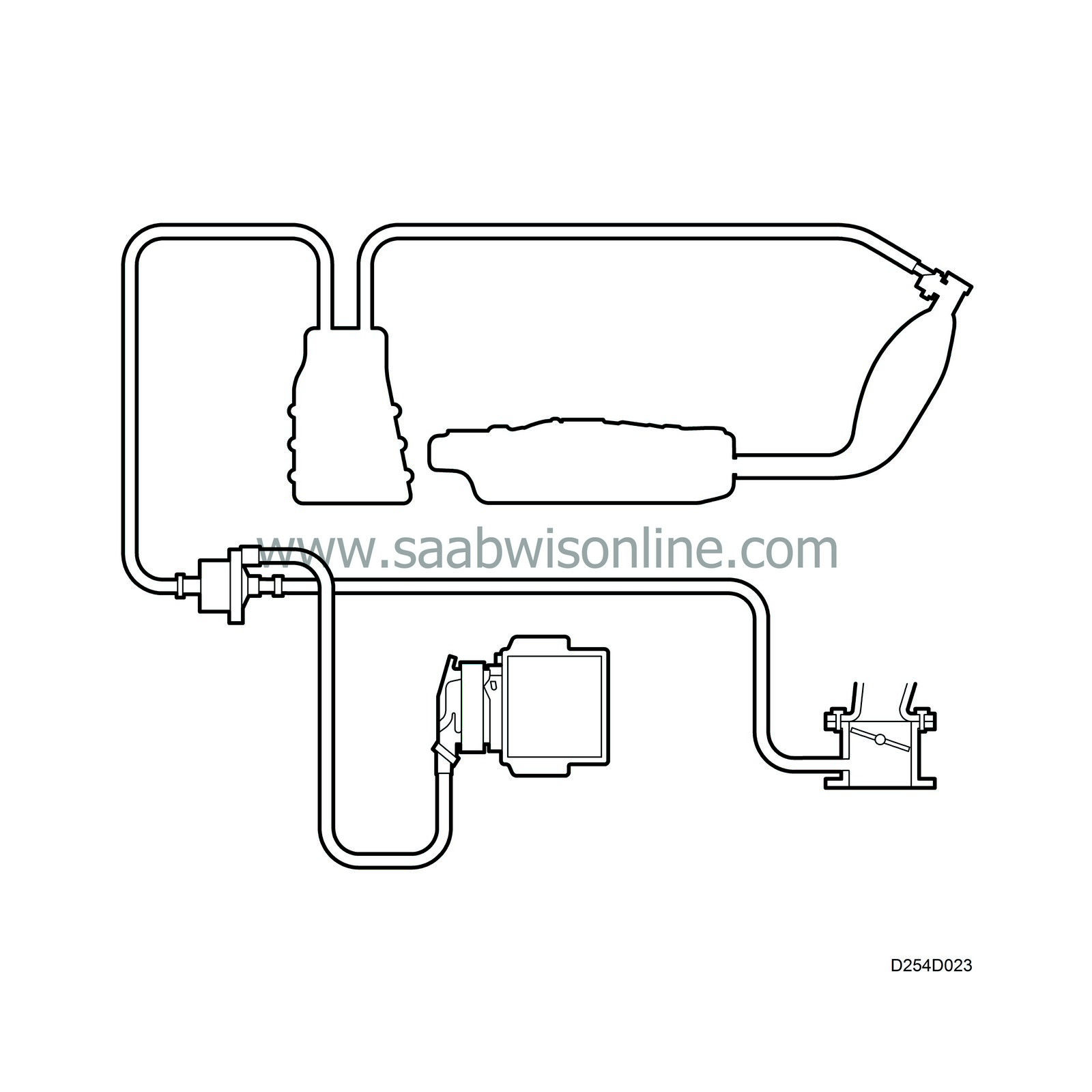Evaporative emission system
| Evaporative emission system |
| Function |
Fuel vapours from the fuel tank ventilation system are carried to a canister filled with active charcoal where they are stored when the engine is not running.
When the car is driven the EVAP canister purge valve opens and the fuel vapours are then sucked into the engine and burned there.
The EVAP canister purge valve is controlled by the engine management system which takes the engine's workload, etc. into consideration and decides when the engine can burn this extra mixture.
| Evaporative emission canister |
The evaporative emission canister is filled with active charcoal whose purpose is to act as a "buffer store" for the fuel vapours from the fuel tank. These vapours are passed by the purge valve to the intake manifold for combustion together with the regular fuel-air mixture.
The evaporative emission canister is connected by hoses to the fuel tank and intake manifold. It is also in communication with the outside air. Outside air is sucked in through the evaporative emission canister where it is cleaned. On the way it absorbs the fuel vapours and carries them along with it to the intake manifold.
| Diagnostics and fault diagnosis |
See Purging for fault diagnosis of the EVAP canister purge valve.
| ORVR |
To increase environmental safety still further and to meet legal requirements, an evaporative emission system for controlling hydrocarbon emissions in connection with refuelling has been developed. To meet these requirements, the car must deal with the evaporated hydrocarbons that are formed when filling up with fuel.
Only certain markets are equipped with this system.
All LEV cars (Low Emission Vehicle) are fitted with ORVR
The system is called ORVR , O nboard R efuelling V apour R ecovery. It is described in “Evaporative emission system, ORVR“.



